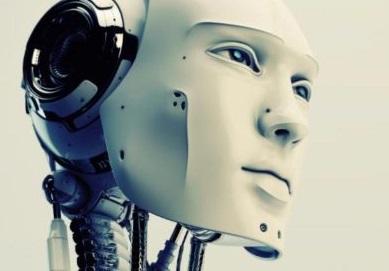Robots will revolutionise work, but can they also empower humans?

Technology is rapidly changing both our work and lives. Smart phones and social media are already “connecting” the world, allowing for instantaneous communication and access to an almost infinite amount of information at people’s fingertips. As significant as these changes have been, robotics will likely have an even more far-reaching impact on employment. They will assist and in many cases take over the current jobs performed by humans.
Many experts are predicting that we are rapidly headed toward a “fourth industrial revolution” where automation, robotics and computing take centre stage. Obviously, this shift could be revolutionary. However, the perhaps more important question is if it will also be empowering? If recent history is anything to go by, then the answer is at best mixed. While the digital revolution has made work more flexible, it has also in many cases increased work intensification and anxiety by creating the “always on” employee who is expected to work anytime and anywhere.
These fears are perhaps starker when considered in light of robotics. There are dystopian images of a world dominated by artificial intelligence that has little need for humans, an economy marked by mass unemployment and social alienation. Yet there are also brighter visions of a technology driven future where robots and artificial intelligence pave the way for luxury automated full Communism.
In between these apocalyptic and utopian ideas is a more ambiguous emerging reality. Undoubtedly this will represent a serious disruption to the status quo. The past several years has witnessed seismic political shifts such as the election of Trump and Brexit largely fuelled by those who felt they have been left behind by the global knowledge economy.
The coming rise of the machines only exacerbates these fears. Putting aside undue hysteria, the proliferation of technologies like driverless cars simultaneously promise to make transportation cheaper and more convenient while also putting the jobs of existing drivers in jeopardy. As robotic technology spreads into professions such as medicine and law, these threats to employment will only grow.
However, it will also possibly disrupt out dated traditional economic models and assumptions. At the very basic level it can positively reduce the need for human labour, creating the prospect for a viable post-work society. The promotion by an increasing number of policy makers, activist, economist and technologists of universal basic income speaks to this concrete possibility. These broader policy shifts would represent a reversal of conventional working life with the emphasis being placed on the personal over the professional.
Yet it holds the further promise for the dramatic transformation of existing economic organisations and processes. The inclusion of robots into the workplace can reduce a range of monotonous tasks, leaving human employees greater time for pursuing creative and interesting activities. Within the HR profession, for instance, the adoption of robotic process automation can use this technology to complete repetitive tasks such as payroll and automated responses, so that human employees can focus on questions of strategic vision and organisational culture.
These advancements provide an additional opportunity for humans to innovatively use robotic technology. Non-human enhancements such as robotic prosthetics or seeing aides can dramatically improve individual’s ability to do their jobs and expand their professional horizons. This could also allow people to work longer into their life and recover from injuries faster that have kept them out of employment. The danger, though, is that these enhancements will be exploited by companies to increase how much and for how long individuals work rather than improve their overall working conditions and life.
Perhaps more radically robotics contains the potential to alter existing manufacturing and business models. The traditional factory will be augmented and even replaced by collaborative “makerspaces” where individuals and groups share the use of future tech like 3D printing to produce a diverse array of products. A strong spirit of collaboration, common learning, and shared knowledge marks these spaces. They also help to create a working life that allows for greater flexibility and autonomy, giving people enhanced ability to control when and how they do their job.
Ultimately, it is becoming quite clear that robots will revolutionise how we work. They will replace and disrupt conventional employment on almost unprecedented scale. The present digital revolution has shown the opportunities and dangers of these profound changes. Yet what must not be forgotten is that it will be humans that ultimately decide whether this robotic revolution is empowering or disempowering.
Dr Peter Bloom, Senior Lecturer and Head of the Department of People and Organisations at The Open University Business School.
This article originally appeared on HR Review. Read the original article.
Upcoming Events
No events
